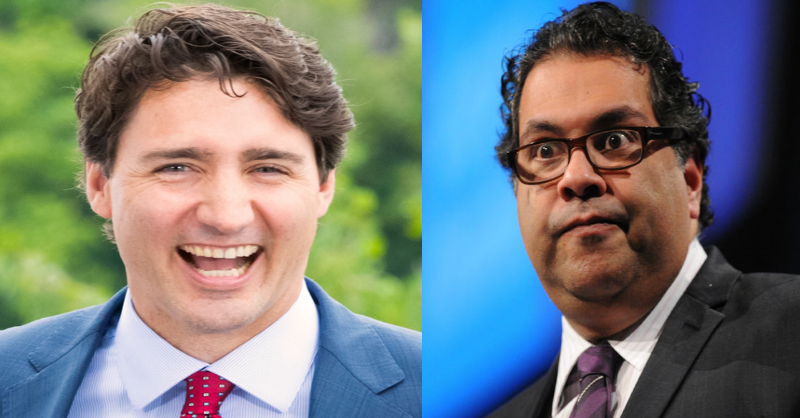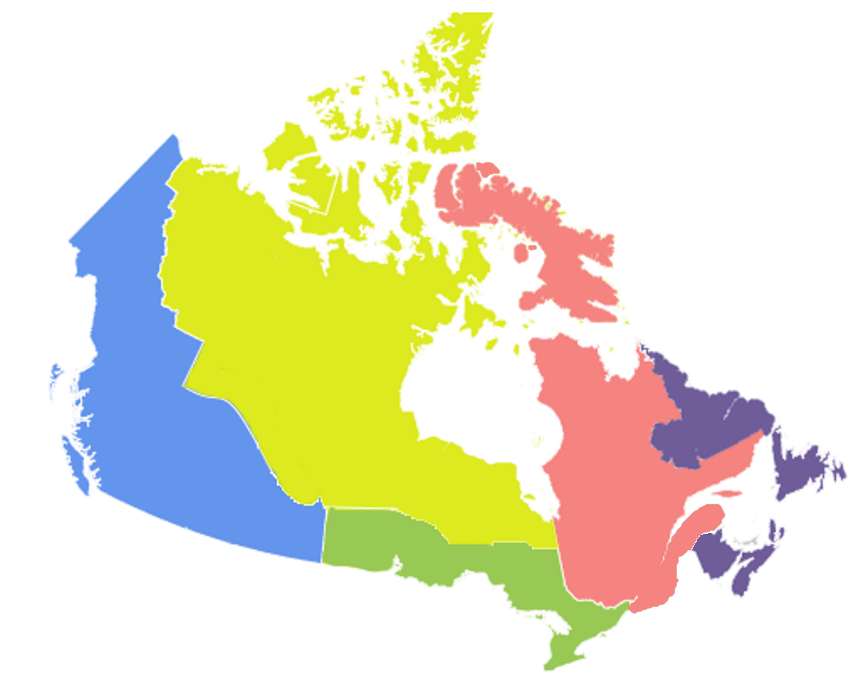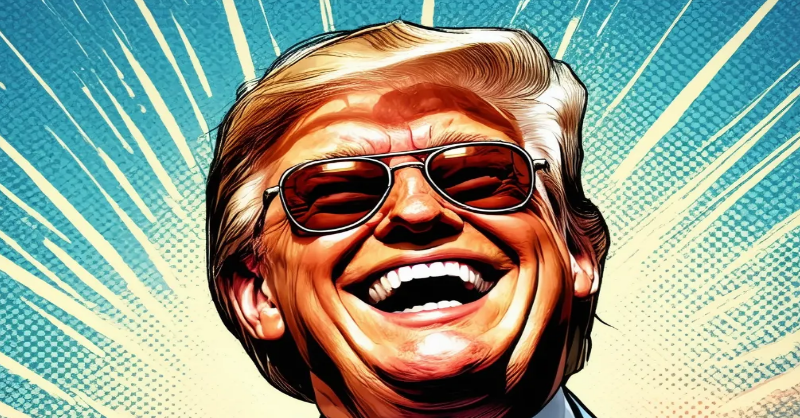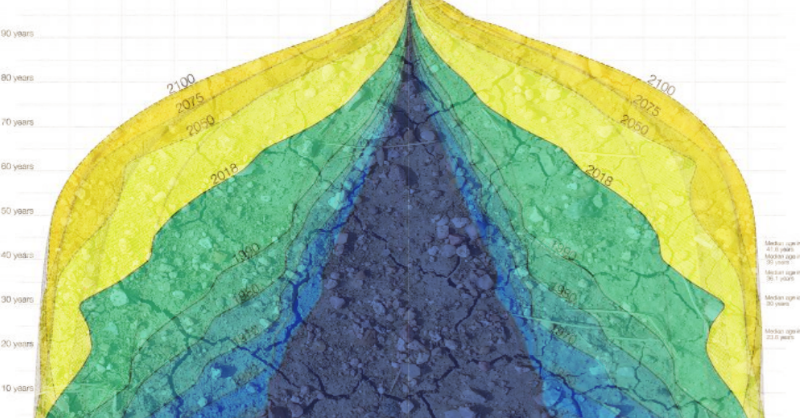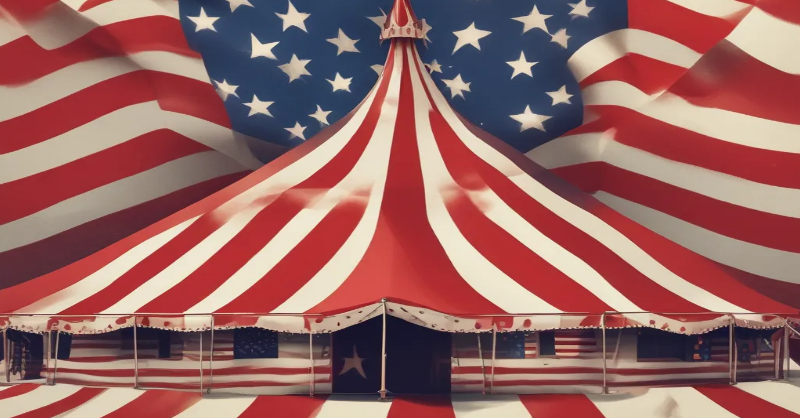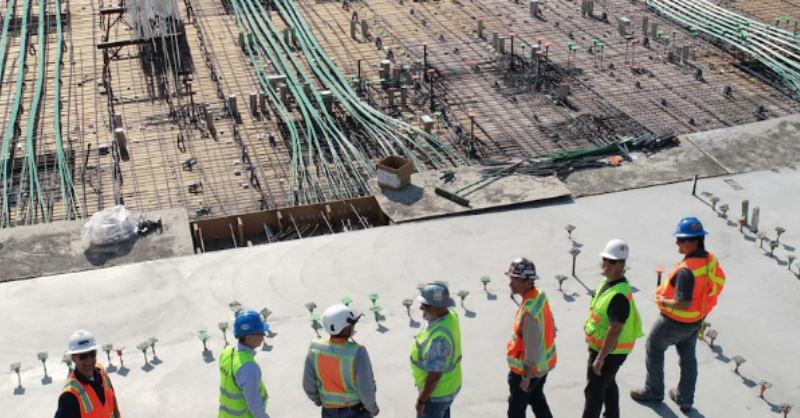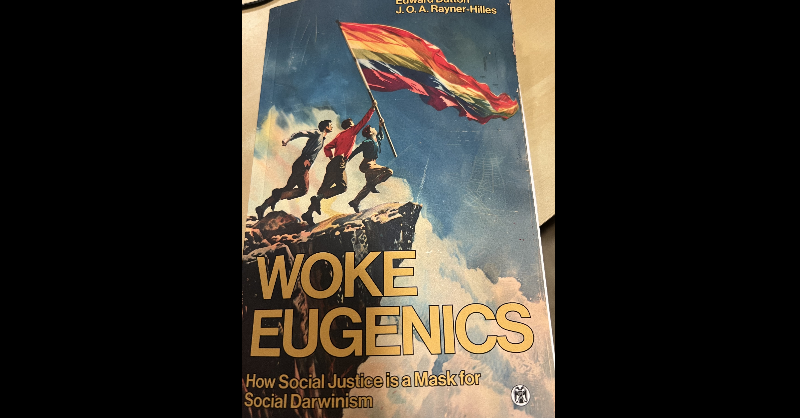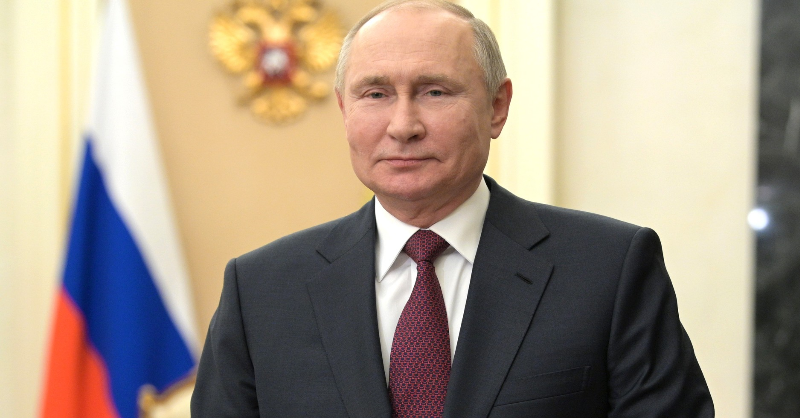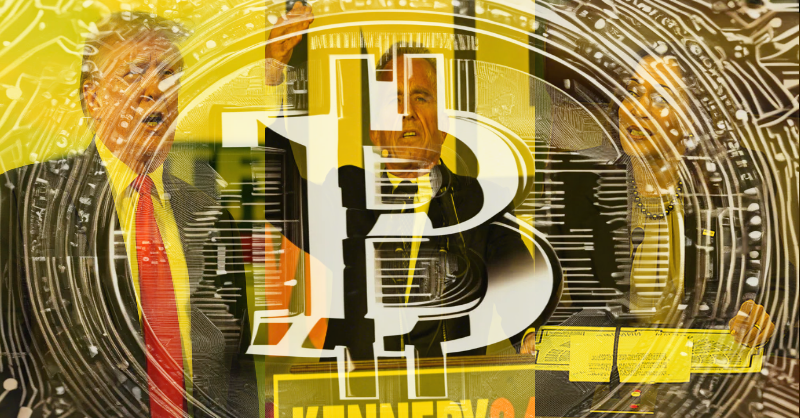Canada does not have an
economy. We have one of the largest land masses in the world, but we
have catastrophic levels of productivity. With only 40 million people, we no longer have enough
labour to service our national debt. Canada's national debt is
nearing two trillion and we now pay more per capita to service the
interest payments than what is sustainable. This explains every
political party's obsession with mass immigration. It's a quick fix
for what has been a decades-long spiral into oblivion. However, as
the cost of housing continues to rise, immigration will cease to
remain a viable solution.
Many immigrants that
came to Canada a decade ago are leaving. Immigrants looking to move
here are realizing it is no longer affordable. At the moment, half of
our new arrivals are rather wealthy, while the other half have
absolutely no skills or education. Two decades ago, poor immigrants
fought tooth-and-nail to get here. Over time, they built a better
life by working and contributing to Canada's GDP. Today, many of our
new arrivals are wealthy and looking to start businesses and buy
revenue properties. Most of them are contributing to our economy, but
not in ways that have made Canada's economy more sustainable.
Many of the refugees
and low-income migrants are quickly realizing they don't have the
skills or eduction to get a job outside the basic service industry.
They're stuck serving coffee at Tim Horton's while their rent and
grocery bills continue to climb. As we know, wages in the entry-level
service industry aren't rising with the costs of living. The country
we had 20 years ago is gone. Sadly, many of the low-income migrants
can't even afford plane tickets to return home.
Immigration has not
increased productivity or diversified our economy. The idea was that
flooding the country with millions more people would keep Canada from
plumetting into a recession. In some ways, it has—but it hasn't
solved the problems that got us here. Immigration has acted as a
temporary crutch to save Canada's crumbling economy, but it has
dramatically increased demands for housing, food, and health care. As
a result, too much immigration has resulted in a drastic collapse in
affordability—which will eventually result in a collapse in
immigration.
Immigration merely delayed the inevitable recession waiting at our doorstep.
At the moment, Canada's
GDP is being propped up by real estate. Real estate is being propped
up by immigration. This is what many Canadians don't realize, but
it's the stark reality every party leader and qualified economist is
acutely aware of.
When immigration stops,
the housing bubble finally pops. Even a significant slowdown in our
immigration rates could cause a collapse in real estate—which, in
turn, would roll our national GDP into the negative. Canadians simply
aren't producing anything anymore. The energy sector is no longer
building pipelines, manufacturing has been exported to other
countries, and inflation is eating away at consumer spending. All of
this is amounting to one of the most disastrous outcomes in Canadian
history.
We Can't Afford
Stimulus
The worst part of this
is that Canada's national debt is so high, we couldn't afford to
borrow the amount required to stimulate and rebuild our economy.
Second, no corporation or foreign investors would invest in our
ruined country, unless they were guaranteed returns. This leaves us
in an unfortunate predicament.
Even if we could borrow
the money, which would be in the hundreds of billions, the added debt
would further diminish the confidence of private companies and
investors, as well as increase the already heavy tax burden on
individuals and businesses. Borrowing more money to kickstart the
economy could backfire and make the situation worse if it fails. With
the prospects of a lower credit score and an unmanageable debt
burden, the likelihood of failure is higher than the likelihood of
success.
If we begin selling the
country out to multi-national corporations, it opens the door to
geopolitical risks and a form of corporate dictatorship. Think back
to when the Hudson Bay Company owned Canada. If Corporation Y and
Corporation Z promise to invest billions into rebuilding Canada,
they're going to need a series of guarantees. Securing those
guarantees means securing a particular kind of governing system. That
could come with significant social and economic costs to taxpayers
and citizens.
If we had a smaller
national debt, this wouldn't be a problem. Had we continued
developing our energy sector, rather than stifling it with carbon
taxes and heavy regulations, none of this would be as catastrophic as
it is. Had we not spent 40 years exporting our manufacturing, things
would be dramatically different. However, what is done is done. We
can't go back to convince Brian Mulroney, Jean Chretien and Stephen
Harper to stop selling out Canada's future for short-term gains—which
is exactly what they did by exporting our productivity and opening
unbalanced trade agreements.
Justin Trudeau's
destructive policies and spending cannot be undone.
Every prime minister
since John Deifenbaker has done their part in securing Canada's
incoming collapse. Neither Conservatives nor Liberals are innocent.
Each party has done everything to avoid economic downturns and
hardships on their watch. They specifically dodged the short-term
pains that would have been required to build Canada into a
self-sustaining empire—all so they could win re-election and
maintain political hegemony. The long-term, destructive and
self-serving results of party politics have never been more evident.
Just like it destroyed
Britain, the Westminster system has systemically destroyed Canada.
Unlike other democratic systems, Canada lacks the same checks and
balances that prevent the never-ending spiral of bad policies we have
seen from every past government. Most Canadians are totally unaware
of the fact Justin Trudeau has stacked the Senate and Supreme Court
without any public scrutiny or confirmation hearings, like what we
see in the United States.
Multiple Outcomes
The sad reality is that
Canada didn't have to end up here. We have an abundance of resources
and we could have maintained a steady flow of immigration had we
allowed our economy to diversify and become self-sustaining. We could
have grown our own food, manufactured our own products, and exported
our most valuable resources while relying on steady, manageable flows
of skilled migrants for labour. Instead, we chose to inhibit our
potential.
Now, here we are.
How we get out of this
mess is anyone's guess, but there are probably a few outcomes to
consider. In the event of a total economic collapse, which is highly
probable at this point, a series of saviours could come to our
rescue. One of them is the United States, another is Europe and some
international banks. Another situation involves the complete
dissolution of Canada as a country. However, the most promising
solution is one that I have already discussed a few times.
Firstly, we have to
consider bankruptcy. This option comes with a massive series of
obligations that wouldn't be good for anyone. Our social services and
entitlements would be up for serious reform, and austerity would
become mandatory. Like selling out to corporate interests, this
solution would come with decades of economic hardship and pain. In a
bankruptcy, Canada would become beholden to foreign creditors and
global banks—more so than we are now. Those creditors would need
guarantees.
If we take bankruptcy
off the table, we have the option of becoming a third-world country
and begging for foreign aid. It would take a lot to get to this
point, but we are heading there quicker than you could imagine. It
would require a complete economic collapse that goes beyond a mere
recession. It would need to be a long, sustained depression. We would
need to see thousands of Canadian families trying to illegally cross
the border into the United States in search of a better life.
Because Canada has an
abundance of natural resources and a fairly educated workforce, it's
more likely that foreign interests would attempt to take what is
already here. To prevent countries like China and Russia from staking
a claim on Canada's fallen dream, the United States would likely step
in to maintain its own geopolitical security.
Before Canada could
even get to the point of full economic ruin, it is highly probable
that the United States would step in.
The geopolitical risks
of forfeiting Canada's land, borders, and resources to other foreign
entities would be far too high for any American president. We all
have a pretty good idea of how a Trump Administration would handle a
collapse of Canada's economy. It's likely that any Democrat or
Republican administration would be quick to see the risks involved
with Canada becoming a failed state.
Depending on the
interests at play in the corridors of Washington, the United States
would either opt to bail us out, or to annex us completely. Either
scenario would amount to virtually the same thing. In each case,
Canadians would be beholden to the United States, as even a bailout
would come with stipulations and obligations.
How would Trump
negotiate a Canadian bailout? We have some good guesses and none of
them involve a deal without any strings attached. If Trump's way of
doing things is successful and it catches on, future presidents will
use his tactics.
A more globalist
Democrat might consider a unilateral, cooperative approach with
Europe and other allied countries. Even so, there would be strings
attached. We have an abundance of oil and natural gas that would need
to be exported to allies in need—at discounted prices. Not to
mention the cobalt, lithium and various other minerals hiding across
the country. Much of the wealth generated from our resources would
end up leaving the country and going elsewhere.
Another situation, one
that is very likely, would be the separation of provinces like Quebec
and Alberta. As the economy takes a catastrophic nosedive, these two
provinces could grow more frustrated with the current federal model
and seek to carve out their own independence. This would end Canada
as we know it, forcing British Columbia and other provinces to either
join other separated provinces, or to find other pathways to
survival. In such a case, Canada would be partitioned and broken into
competing pieces. Some would become independent, some would merge,
others may join the United States.
An alternative to all
of this could be massive investments in robotics and artificial
intelligence. Rather than borrowing hundreds of billions to stimulate
the same economy with the same old ideas, we could be better served
by investing the same billions into a new kind of economy. If we are
going to acquire more massive debt, we will need the guarantee of
massive outputs and increased productivity. Automation guarantees
labour and productivity, while cutting costs and human expenditures
by billions, maybe even trillions of dollars.
We could start
investing the billions now, before the impending catastrophy begins.
In fact, perhaps we
could stave off the impending disaster by throwing billions into
automation and technology right now. We are, after all, sending
billions to other countries to fund wars. Why not throw those
billions at AI and robotics development?
Imagine hydroponics
farms across the country, automated and managed by artificial
intelligence, growing crops and vegetables year-round across the
prairies. Existing farms could exchange human labour for automated
labour, saving farmers millions. Safe, genetically engineered seeds
could grow drought and pest resistant crops—saving millions more.
Artificial intelligence could design equipment, seeds, harvesting
techniques, and various other methods to improve farming. In time,
food could become abundant, cheap, and entirely homegrown.
In two to three
decades, Canada could have absolute food security.
We could develop better
oil and gas extraction methods, while improving carbon capture. Over
a couple decades, much of the extraction could become robotic and
mostly automated, saving billions in human labour. The savings could
be reinvested into anything from basic income to expanded social
programs designed to mitigate the loss of human jobs.
These technologies have
the potential to save every failing economy. As much as Canadians
might fear artificial intelligence now, it could be what gives us the
food, energy, and housing security we won't have in the face of
economic ruin. However, we won't be anywhere near unlocking the
potential in these technologies if we don't start investing now.
In the end, if the
other scenarios come to fruition, our overlords may turn what's left
of Canada into the very utopian dream I have described here. Or, they
could turn it into a dystopian nightmare. The only way to have any
say in our destiny is by acting now.



